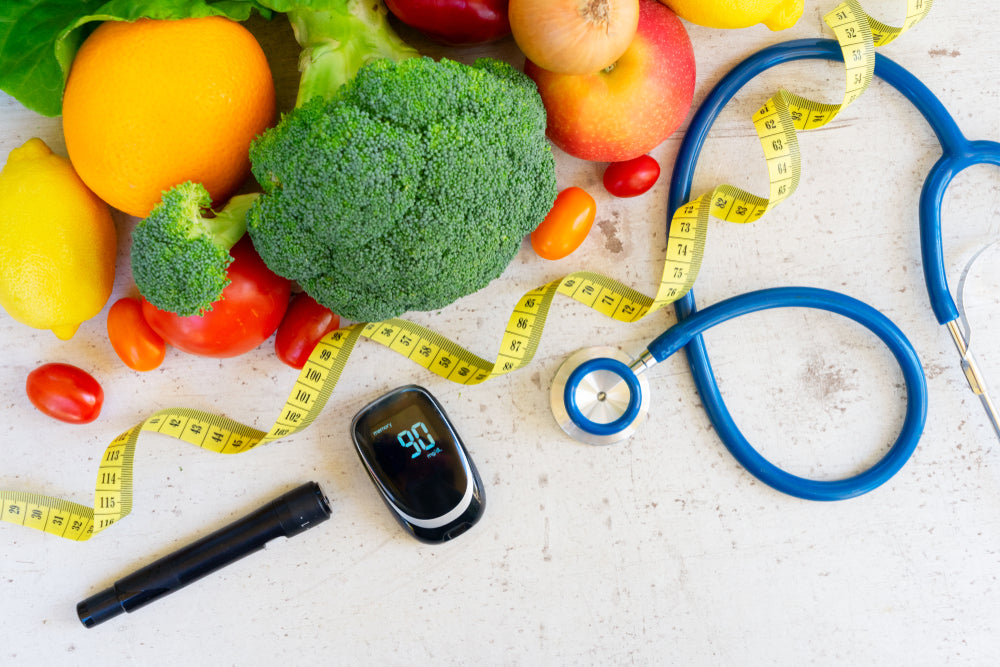
Insulin resistance is a condition that impairs the insulin signaling pathway and reduces the insulin sensitivity of certain target tissues in the body. The decrease of insulin action in people with insulin resistance can make the pancreas release excess insulin to maintain blood sugar stability. This can cause a condition known as hyperinsulinemia that can lead to the development of type 2 diabetes.1
Insulin resistance can also increase the damage caused by metabolic diseases like obesity, nonalcoholic fatty liver disease, and polycystic ovary syndrome.1
The good news is that insulin resistance can be improved through diet and lifestyle changes. Here are some actions you can take to reduce your odds of developing insulin resistance.
Only certain forms of obesity are linked with insulin resistance.2 Researchers have found that an increase in visceral adipose tissue, the kind of fat tissue located deep in the abdomen and around internal organs, is associated with a much higher risk of developing insulin resistance.2,3 Therefore, losing belly fat through good diet and exercise is crucial in managing insulin resistance.
High levels of psychological stress also have been associated with insulin resistance. Psychological stress activates several metabolic systems within the body, resulting in the formation of substances that cause oxidative stress in insulin target cells.4 Healthy diet and exercise can help reduce stress, as can practices such as yoga and meditation.
Sleep deprivation can cause numerous health problems, including insulin resistance. In one study in humans, researchers found that sleep restriction along with disruptions in circadian rhythm results in altered metabolism and a possible increase in obesity and diabetes risks.5
In another study, depriving healthy subjects of 24 hours of sleep led to decreased insulin sensitivity.6 And in a third small study, participants experienced insulin resistance and reduced glucose tolerance after only one night of getting 4 hours sleep as opposed to 8.5 hours. Insulin sensitivity was reduced by 19-25% along certain metabolic pathways.7
The clear solution is to get plenty of uninterrupted sleep. Experts agree that at least 7 hours of sleep is optimal for healthy adults between the ages of 18 and 60. In addition to duration, healthy sleep should be of good quality and regularity, as well as appropriately timed.8
Dietary fiber comes from the edible parts of plants that resist digestion and absorption by the small intestine and partially or completely ferment in the large intestine. Raising fiber intake has proven to reduce body fat and improve glycemic response, as well as lower blood pressure and cholesterol.9
A diet high in fiber has been shown to reduce the risk of insulin resistance and increase insulin sensitivity. In one extensive study, participants who consumed large amounts of fiber had less insulin resistance than their counterparts.10
Berberine, a compound that can be extracted from a number of different plants, has been used for millennia in traditional Chinese medicine to treat various conditions.11,12 Researchers have confirmed its hypoglycemic properties and beneficial effects on lipid metabolism.11 One study noted that berberine increased insulin sensitivity in insulin-resistant type 2 diabetes patients.12
Chromium is a key micronutrient required for metabolizing glucose, protein, and lipids, and its deficiency can cause insulin resistance, among other disorders. Supplementing with chromium has been shown to increase insulin sensitivity and decrease insulin resistance.13
The mineral magnesium is involved in glucose metabolism and plays a key role in insulin action.14 Magnesium deficiency has been associated with insulin resistance and a higher risk of metabolic syndrome. According to recent studies, magnesium supplementation has been connected with a reduction in fasting glucose and insulin and decreased risk of type 2 diabetes.13
Although supplementation with either chromium or magnesium alone has been shown to reduce insulin resistance, research has discovered that combining the two is even more effective at improving the condition.13
The common household spice cinnamon has shown promise in helping to manage metabolic disorder, insulin resistance, and type 2 diabetes, among other conditions. Research indicates cinnamon contains certain polyphenols that have insulin-like activity. Several studies involving doses of cinnamon ranging from 500 milligrams to 6 grams per day showed an improvement in glycemic control in patients with diabetes and prediabetic conditions.15
Many health benefits have been associated with consumption of green tea, many of which can be attributed to epigallocatechin gallate (EGCG), its most abundant polyphenol. Studies of green tea supplementation show it can raise glucose uptake and increase insulin-stimulated glucose metabolism in adipose cells.16
The effects of vinegar on the glycemic response has been the subject of many studies, mostly due to its acetic acid component. Organic acids like acetic have been shown to significantly lower glucose and insulin responses when added to carbohydrate-rich meals in subjects with type 2 diabetes. Some researchers believe this occurs because acetic acid slows gastric emptying.17
Others attribute vinegar’s ability to improve glycemic control to its activation of free fatty acid receptors. This causes a chain reaction that leads to lower levels of free fatty acid in circulation and, subsequently, improved insulin sensitivity.18
References